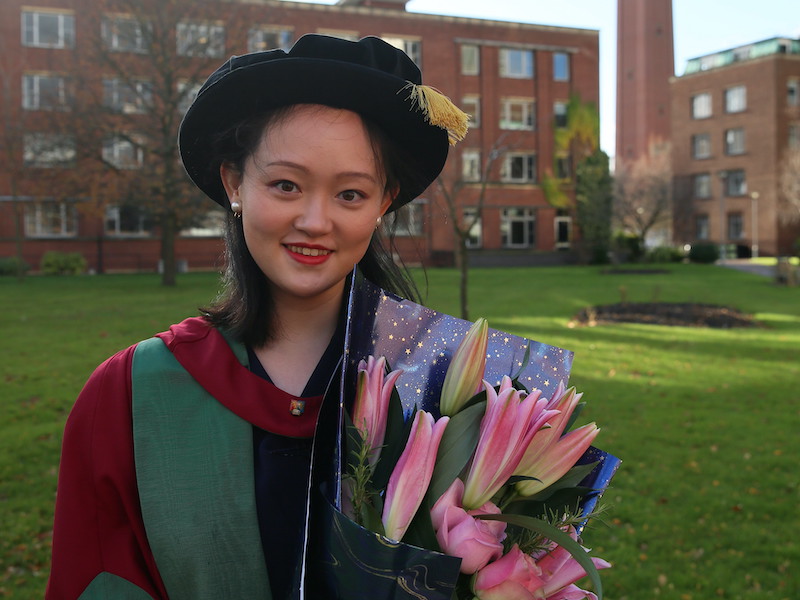Qianyu comes from a highly educated family background where her parents are both professors of mechanical engineering at universities.
Striving to grow up and learn more in life is always the encouragement and expectation from her parents. Little did Qianyu know that becoming a female researcher in the male-dominated engineering industry could be so challenging yet fulfilling.
After completing early education in her home country, Qianyu traveled to the UK at the age of 20, starting BEng in Electrical and Electronic Engineering at the University of Leicester. In her second year of BEng, she was awarded a College Prize for the best second year undergraduate. In her final year, she was awarded The IET Prize, as well as The Institute of Measurement & Control East Midlands Section Prize for her distinguished performance in achieving the BEng degree with First Class. This is when her determination for success and excellence fruited.
After graduating in July 2016, Qianyu was armed with a scholarship (12,000 GBP) to support her one-year MSc degree course starting in September 2016. After completing the MSc degree in Signal Processing and Communications from the University of Edinburgh with distinction, Qianyu was offered a funded Ph.D. opportunity (19,700 GBP each year) at the University of Birmingham for her excellence and intelligence in engineering. During her 4-year research studies, Qianyu has developed a list of innovative methodologies in improving the performance of railway operations. She has successfully applied state-of-the-art neural network and machine learning techniques to achieve automatic fault diagnosis and prognosis in the field of railway asset management. She has published the results of her work widely, including making numerous presentations at conferences and industry meetings.
Currently, Qianyu works as a Research Fellow in the School of Engineering at the University of Birmingham, where she leads mind-blowing research with an amazing world-class team. She has helped to develop innovative ideas and encourage new collaborations with other researchers in the UK and overseas; liaised with industry stakeholder representatives to deliver research projects successfully. Qianyu has collaborated with teams from HS2 Ltd on developing simulation models for the improvement of understanding of the performance of expansion joints applied to high-speed rails.
A keen advocate of the ‘pay it forward’ culture, Qianyu volunteers as an e-mentor for the University of Leicester and produces video content to showcase the laboratory equipment in the engineering building and the University’s overall cultures to encourage others to get involved. She has also been a motivational STEM ambassador and a member of ‘Code First Girls Community’, thriving to inspire and empower a variety of participants, particularly from underrepresented ethnicities, to pursue careers in sectors of engineering and science.
Qianyu’s ambition has always been to spread knowledge and energy to break stereotypes and to make engineering industries more diverse and inclusive. She is keen to act as a role model, demonstrating through her unique experience of being a female young researcher in engineering.

